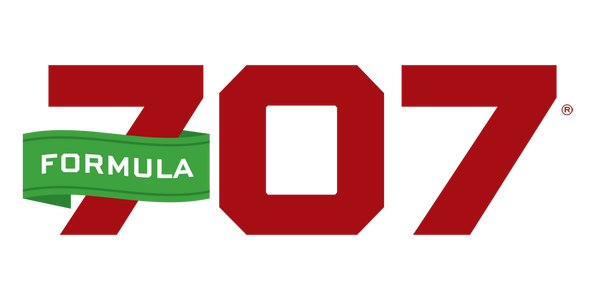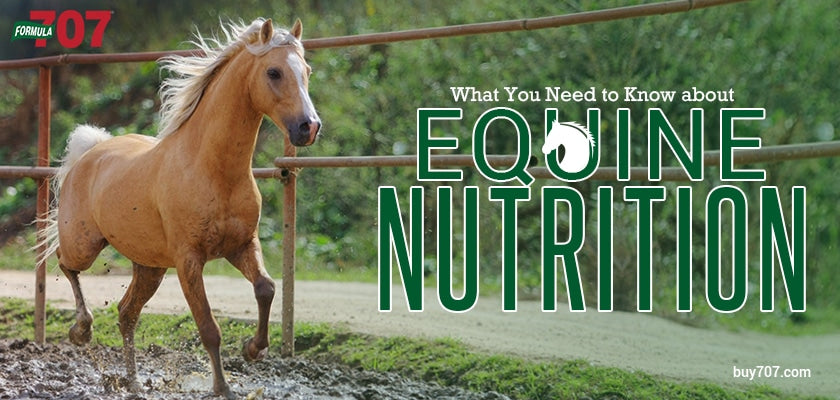Understand the Limitations of a Horse’s Digestive System
In their natural environment, horses spend a large part of their time foraging for food. They spend about 16-18 hours grazing and searching for food. As a result, they have a small stomach and have a digestive tract that’s uniquely designed for processing small portions of food throughout the day. An average-sized horse weighing 1,000 lbs has a stomach capacity of only about 2-4 gallons. So there are limitations on the amount of feed your horse can take at a time. It’s crucial to keep this fact in mind if you wish to become an expert in equine nutrition. A horse’s stomach will start secreting pepsin and hydrochloric acid to immediately break down the food they eat. And they’re unable to regurgitate food. This means vomiting isn’t an option even when your horse overeats or happens to eat something poisonous. Another important fact about horses is that they don’t have a gallbladder. So they’re unable to digest high-fat diets and utilize it efficiently. Although your horse will be able to digest a diet containing up to 20% fat, it will take them several weeks (3-4 weeks) to adjust. Ideally, you should only feed them a diet containing 3-4% fat for proper equine nutrition.Important Facts about Different Types of Hay
Hay forms the basis of all equine feeding programs. You can find two types of hay – legume hay and grass hay. Alfalfa is an example of legume hay and is higher in protein content than grass hay. There is a common misconception that Alfalfa is too rich for safely feeding your horses. But that’s not the case. It does contain more digestible energy, calcium, and protein. However, its soluble sugar content is lower than with grass hay. Image Source: Maxpixel
The misconception arises from its easily-digestible and highly nutritious leaves, which could result in gastrointestinal upset or even colic. But that’s only if it’s introduced too early in a horse’s diet. You need to gradually introduce this variety of hay into your horse’s diet. And it’s crucial to limit the quantity as the free-choice feeding of high-quality alfalfa could result in obesity. It’s best that you supplement it with grass hay so that your horses get adequate chew time.
In order to maintain proper equine nutrition, it’s of the utmost importance that you ensure proper baling and storing of hay. Hay tends to mold if it’s put up before it’s fully cured or it’s rained on after baling. If you notice any signs of white powder or if it gives off a musty moldy smell, it’s best to discard the hay instead of feeding it to your horses.
Image Source: Maxpixel
The misconception arises from its easily-digestible and highly nutritious leaves, which could result in gastrointestinal upset or even colic. But that’s only if it’s introduced too early in a horse’s diet. You need to gradually introduce this variety of hay into your horse’s diet. And it’s crucial to limit the quantity as the free-choice feeding of high-quality alfalfa could result in obesity. It’s best that you supplement it with grass hay so that your horses get adequate chew time.
In order to maintain proper equine nutrition, it’s of the utmost importance that you ensure proper baling and storing of hay. Hay tends to mold if it’s put up before it’s fully cured or it’s rained on after baling. If you notice any signs of white powder or if it gives off a musty moldy smell, it’s best to discard the hay instead of feeding it to your horses.
Nutrient Requirements for Proper Equine Nutrition
Horse owners are obligated to have a thorough understanding of the nutrient requirements of your horse. There are six main classes of nutrients horses require, and most of these nutrient requirements can be supplemented with daily essentials pellets that contain the adequate amount of vitamins and minerals. Let’s take a closer look at the different classes of nutrients necessary for a horse’s survival: 1. Water – Water is the most vital nutrient that a horse needs for survival. You would already know that your horses require an adequate supply of clean water. What you should know additionally is the exact quantity your horses will need, which is about 2 quarts for every pound of hay. However, their water requirement increases three to four times in high temperature or when they’ve been hard at work. The same goes for lactating mares. 2. Vitamins – If you’re feeding premixed rations and/or fresh green forage to your horses, they’re already getting adequate amounts of vitamins. However, they will need vitamin supplements in case they’re getting a high-grain diet or you’re using low-quality hay. Prolonged strenuous activity, stress (due to racing, showing, traveling, etc.), and loss of appetite (due to illness, surgery, etc.) also call for the use of vitamin supplements. 3. Fat – As mentioned earlier, horses find it difficult to digest and utilize fat. However, fat is still an essential component in their diet if you wish to maintain proper equine nutrition. Premixed feeds generally contain fat at about 2-6%. You might even find higher fat feeds with 10-12% fat content. 4. Minerals – Minerals help maintain your horse’s body structure and cell fluid balance. They also maintain proper muscle contraction and nerve conduction. The ideal ratio for serving calcium and phosphorus is 2:1 and it should never be less than 1:1. When horses sweat, the chloride, potassium, and sodium levels get depleted. So make sure you supplement them with electrolytes in case your horse sweats a lot. Adult horses generally receive sufficient amounts of minerals if they’re consuming premixed rations or fresh green pasture. However, that excludes sodium chloride, which you should always have an adequate supply of. For young horses, the first two years of their lives would call for supplementation of calcium, copper, phosphorus, and zinc. Image Source: Maxpixel
5. Protein – Protein helps with muscle development and you can find sufficient supply of it in alfalfa and soybean meal. For most adult males, 8-10% protein is enough for proper nutrition. But in case of growing foals and lactating mares, a high protein diet is crucial.
6. Carbohydrates – Carbohydrates are a vital source of energy for your horses. The horse’s body can easily break down and absorb soluble carbohydrates, which can be found in almost every feed source. Corn, barley, and oats are rich in this type of carbohydrates. While carbohydrates are essential for your horses, it’s also important to restrict overconsumption. Suddenly consuming large amounts of high sugar feeds or starch could result in conditions such as colic or laminitis.
Image Source: Maxpixel
5. Protein – Protein helps with muscle development and you can find sufficient supply of it in alfalfa and soybean meal. For most adult males, 8-10% protein is enough for proper nutrition. But in case of growing foals and lactating mares, a high protein diet is crucial.
6. Carbohydrates – Carbohydrates are a vital source of energy for your horses. The horse’s body can easily break down and absorb soluble carbohydrates, which can be found in almost every feed source. Corn, barley, and oats are rich in this type of carbohydrates. While carbohydrates are essential for your horses, it’s also important to restrict overconsumption. Suddenly consuming large amounts of high sugar feeds or starch could result in conditions such as colic or laminitis.

